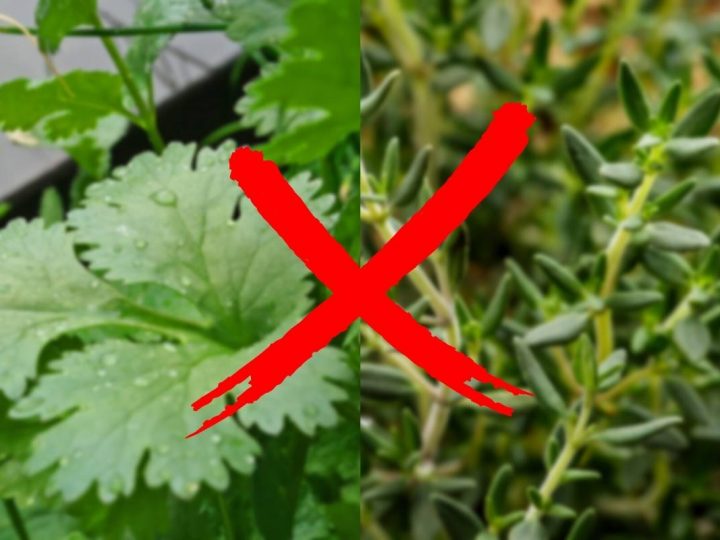In the world of natural plants, many things are magical as to how they symbiotically grow together and produce the best yield.
However, some herbs should not be planted together to avoid pests and reduce the yield of each other.
Herbs that should not be grown together depend on many factors such as growth characteristics, light, nutrition, distance, and the types of pests that spread to each other.
That’s why perennial gardeners often advise against planting several herbs next to each other. What herbs should not be planted together? Let us list and find out the reasons for this.
What Herbs Should Not Be Planted Together?
Before making a list of herbs that should not be grown together, you need to consider their causes. Usually, you should not plant herbs with different properties too much together because they will inhibit each other.

Some of the common reasons such as:
Perennials and annuals: Perennials and annuals are considered an ideal solution for saving land for perennial cultivation. Intercropping between perennials and annuals is seen as a useful solution to harvest year-round yields.
However, the constant disturbance of the soil as well as fertilizers, pesticides, or the use of machinery to till the soil when planting annual crops will affect the growth and stability of perennials.
About planting site: Mediterranean herbs prefer full sun, and do not like nutrient-rich, alkaline, and drier soils. Meanwhile, some herbs prefer shade, rich soil, and moisture, so they should not be planted together.
Distance: Most herbs grow very quickly as shrubs, creepers, or clumps, so if not pruned regularly, they will quickly encroach on the surrounding area and compete for growth.
Nutrients: Herbs are known for their large amounts of essential oils and are rich in nutrients, so they are a favorite in every meal. However, each herb has a different ability to absorb nutrients, so intercropping herbs can create nutrient inhibition in different types.
Following the above considerations, we can list out a few herbs that should be planted together for best performance such as:
- Dill and wormwood should not be planted with other plants: Do not plant dill near other plants because they will inhibit their growth and affect their taste. Wormwood will also harm herbs if they are planted close together.
- Anise and fennel should not be planted near carrots: Anise and fennel will inhibit the growth of carrot plants in terms of speed and light photosynthesis.
- Dill should not be planted near tomatoes: Dill is very suitable for growing with lettuce, cabbage and onions but is not suitable for growing with tomatoes because of their nutrient inhibition.
- Garlic, chives, onions should not be planted with peas: The growth of peas will be inhibited if they are planted near garlic, chives or onions.
- Dill is not compatible with watercress, fennel (Foeniculum vulgare), caraway, marjoram (Origanum majorana) and tarragon.
- Basil should not be planted with perilla and mint.
- Parsley is not compatible with chervil and dill (Anethum graveolens).
- Mint does not produce effective yields when grown with chamomile.
- Marjoram is not suitable for growing with dill and thyme.
These are some of the herbs that you should not grow together as their different growth and development properties will cause them to produce light, nutrient, or distance inhibitions.
In particular, growing these herbs together may affect the specific flavor of the herbs because they are all herbs with a strong and strong flavor.
Conclusion
The co-planting of any plant or herb should be carefully considered. You also need to consider factors such as growth time, light requirements, temperature, nutrients, pH or flavor of each herb.
It is important that you classify your herbs so that they maximize their specific aroma and do not mix with other herbs. So they will not lose their delicious flavor when seasoning in each dish.
Join us for more discussion by leaving comments and asking questions to learn more about herbal topics in future articles.